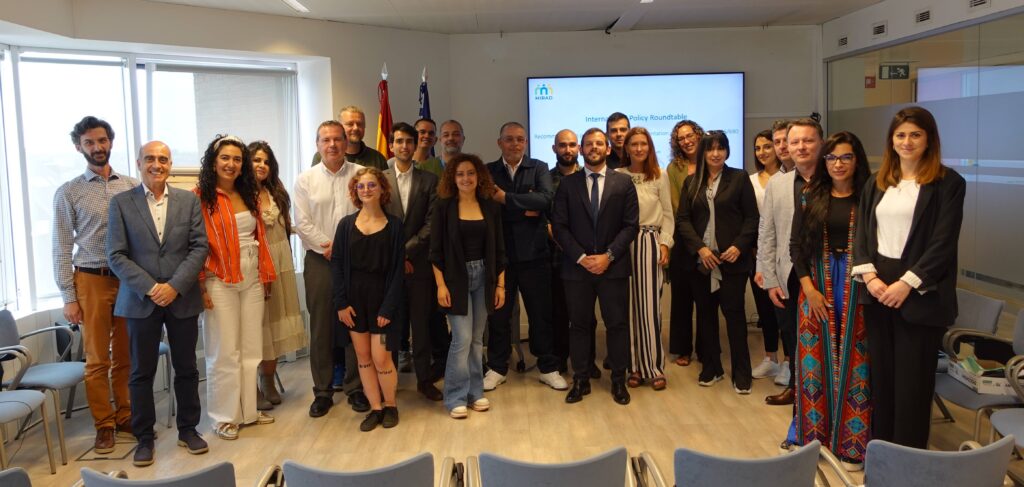Prison and probation experts, as well as policymakers from multiple European countries recently met in Brussels to discuss challenges and needs in the domain during the MIRAD’s International Policy Roundtable.
Throughout the past weeks, the MIRAD consortium partners from Bulgaria, France, Greece, Poland, and Spain conducted national roundtable discussions for professionals. During these meetings, practitioners have been sensitised regarding the importance of integrated, transversal approaches when activating individual disengagement programmes from violent extremism, but also they shared thoughts about the state of the judicial system in their countries.
The needs and recommendations for the European Union’s field of disengagement and reintegration of violent extremists into society were collected, such as:
- weak communication and cooperation between different organisations;
- the need for staff training;
- and the lack of systematic risk assessment tools.
The shared reflections and conclusions resulting from the National Policy Roundtables were then used as a basis for the discussions on the European level. This helped not only to summarise the discussions but also to see the bigger picture of the state of the European judicial system. The International Policy Roundtable took place in Brussels, which allowed inviting also practitioners from Belgium.
The meeting began with the introduction of the MIRAD project and continued with a presentation about Protocol screening and mapping of European-wide collaboration strategies, conducted by Pedro Liberado, chief research officer at Innovative Prison Systems (IPS). Practitioners’ perspectives on inter-institutional and multiagency cooperation were also discussed, along with the results of National Policy Roundtables.
The afternoon session was dedicated to the introduction of Directive 2016/680, also known as Data Protection Law Enforcement Directive (LED). Then participants discussed the details of the Recommendation Paper towards the implementation of this document.

